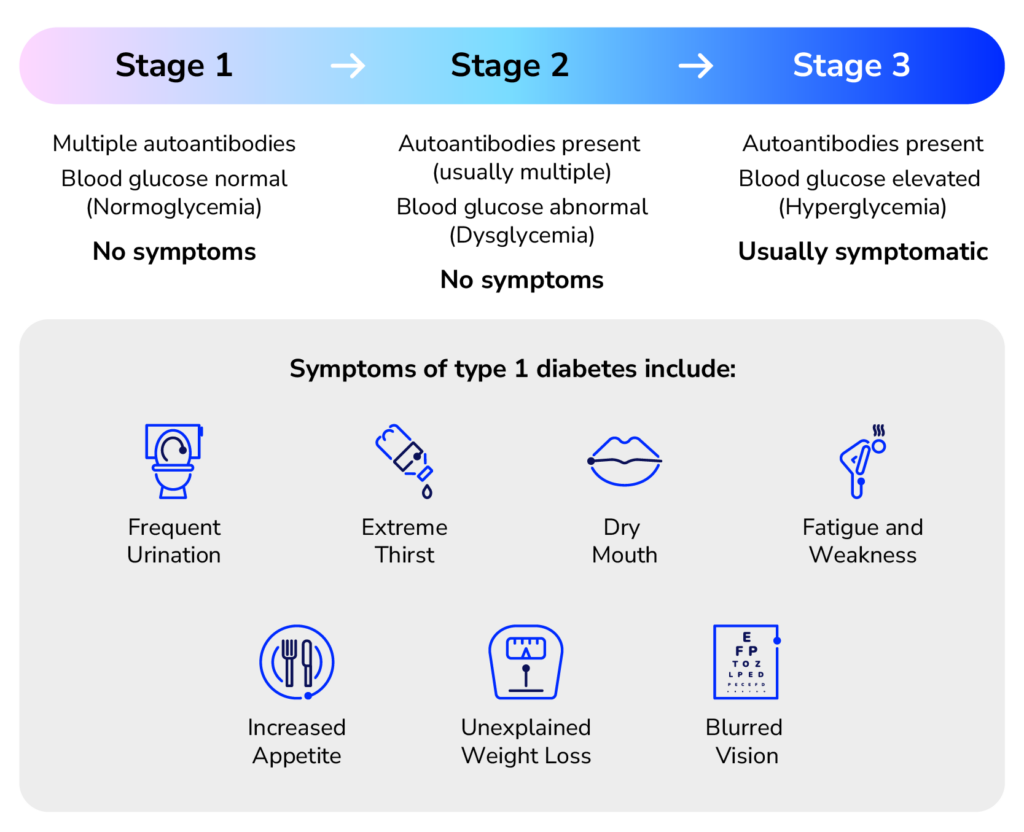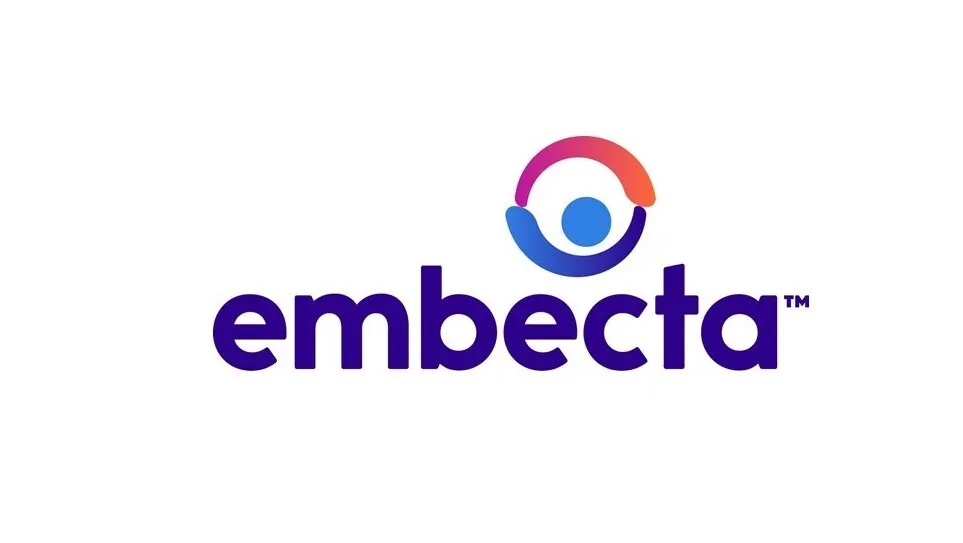Breakthrough T1D Early Detection
Detect so you can decide. With medical advances, there’s more power than ever in testing early for type 1 diabetes (T1D).

Early detection gives you time
Thanks to decades of research, we can now detect type 1 diabetes in its earliest stages with a simple blood test. That means you could have more time to decide how to prepare for future medical needs, long before insulin is required. In some cases, you may even be able to delay disease progression.
The knowledge you gain can help you make important decisions about your health—and prevent serious complications. It can also give you the opportunity to help advance important research.


How is type 1 diabetes detected early?
Type 1 diabetes develops in stages over time. A blood test can identify people who have proteins in the blood called autoantibodies. These autoantibodies signal that the body’s immune system is attacking the insulin producing cells in the pancreas. If a person has two or more persistent autoantibodies, they are very likely to develop type 1 diabetes.
Who should get tested?
People who have a first-degree family member (sibling, parent, child) with type 1 diabetes are at an increased risk (15x) for developing the condition. Current clinical guidelines recommend early detection for this population to identify autoantibodies. However, about 85% of T1D diagnoses occur in people with no known family connection which is why Breakthrough T1D has a long-term goal of global universal T1D early detection. Everyone should know the signs and symptoms of T1D.


Why does early detection matter?
With early detection, it’s possible to reduce the risk for diabetic ketoacidosis (DKA) at diagnosis, identify people who may benefit from early-intervention clinical trials, give families time to prepare and provide the option to intervene early with FDA-approved therapies to delay the need for insulin. If you have positive test results, you will also be able to develop a plan for further monitoring with your doctor to avoid an emergency diagnosis
How to get screened for T1D
If you have a family member with type 1 diabetes, one of the first pathways you should explore is a T1D early detection research study. This will put you in contact with some of the world’s leading type 1 diabetes doctors, researchers, and diabetes care and education specialists.
TrialNet
A free, research-based T1D early detection and clinical trial program for family members of people with type 1 diabetes. This network of experts has sites throughout the United States and T1D early detection can be done through an at-home kit or in-person. The program is available for individuals between the ages of 2 and 45 years with a first-degree relative (parent, child, sibling) with T1D, ages 2 to 20 with a second-degree relative (cousin, grandparent) with T1D, OR anyone ages of 2 to 45 years and have tested positive for at least one T1D related autoantibody outside of TrialNet.
ASK (Autoimmunity Screening for Kids)
Provides early detection for T1D and celiac disease for all children and adults ages 1-99 years in the United States. No family connection to T1D is required to participate in the ASK program.
PLEDGE (Population Level Estimate of Type 1 Diabetes Risk Genes in Children)
Provides T1D early detection of children younger than age 6 who are patients at Sanford Health in South Dakota.
Download our one-page printable document with information about T1D early detection, including TrialNet and ASK, for patients and healthcare providers:
Blood tests ordered by your doctor
Your doctor (or your child’s doctor) can order labs to detect T1D autoantibodies and the cost may be covered by your insurance. Testing labs that currently provide this service in the United States include:
- Mayo Laboratories
- LabCorp
- Quest Diagnostics
Autoantibodies that your provider should be testing for through labs include:
- Insulin Antibody: CPT 86337
- GAD Autoantibody: CPT 86341
- IA2 Autoantibody: CPT 86341
- Zinc Transporter 8 Autoantibody: CPT 86341
What do my lab results mean?
Type 1 diabetes develops in stages over time. Early detection can help identify type 1 diabetes before symptoms occur so that you and your healthcare provider can develop a monitoring plan. The chart below explains the different stages of type 1 diabetes and the symptoms that families should be aware of during monitoring.

What should I do next?
The good news is that most people will not have T1D autoantibodies. Based on existing evidence, we expect 95-97% of family members and 99% of people with no family connection will have a negative result.
If your results are negative and you’re under the age of 18, you may consider again participating in T1D early detection in the future.
If you have positive results, it is extremely important to follow up immediately to repeat the autoantibody early detection and other testing. You should also talk with an expert to get a monitoring plan in place. Anyone who tests positive should share the information with their doctor and take advantage of one of the following free resources:
TrialNet
TrialNet is an international network of leaders in T1D research and clinical care with 27 centers in the United States. They will be able to confirm the results and may suggest additional testing. You can speak with an expert at TrialNet about your results by emailing info@trialnet.org.
Ask the Experts
ASK the Experts is a group of doctors and other healthcare professionals who can answer your questions about early detection, give individualized advice and determine a plan for confirmatory testing. They can be reached by emailing Questions@AsktheExperts.org or by calling 303-724-1212.
The latest in type 1 diabetes research
Questions?
For questions about Early Detection, please email earlydetection@BreakthroughT1D.org.
Disclaimer:
Testing kits, sample analysis, and test results are not distributed, collected, conducted, analyzed, or reported by Breakthrough T1D. Breakthrough T1D does not assume responsibility for testing outcomes or processes. Breakthrough T1D urges testing users to speak with their healthcare provider for additional information based on the outcomes of their tests. Considering various sources of expert guidance and with one’s own physician, is the best way to make personal health choices. A single autoantibody test alone is not sufficient to determine your T1D risk. It must be confirmed and complemented by other testing and advisement by a medical professional expert in T1D.




